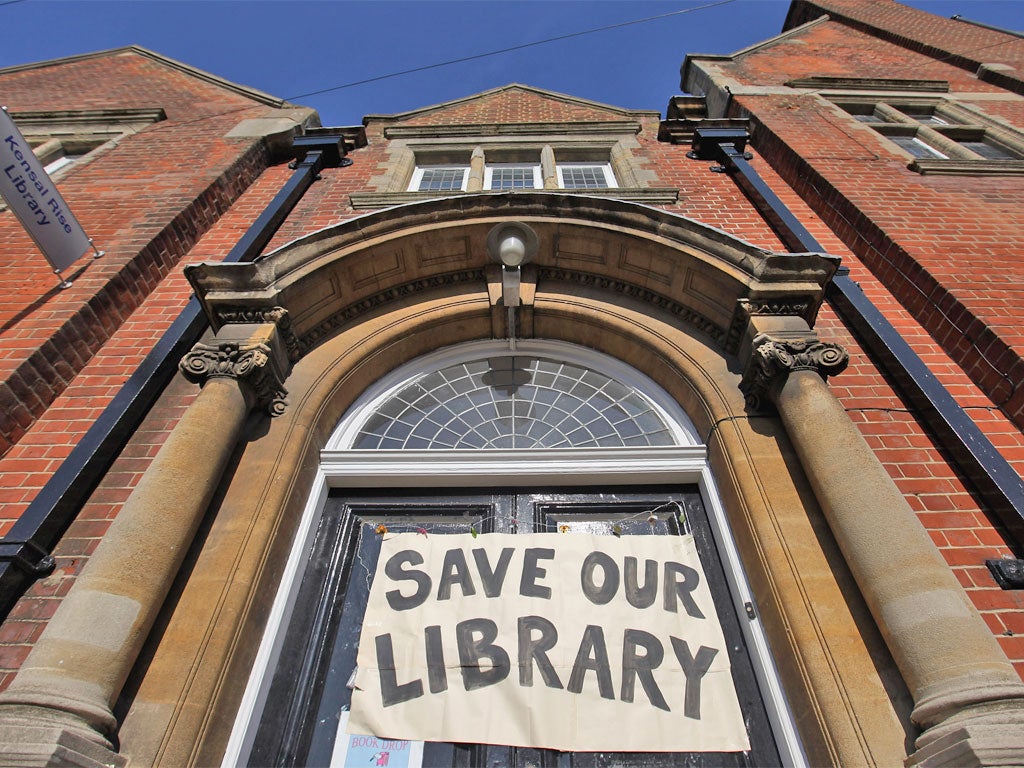Diary: Why the Big Society plays havoc with Britain's borrowers

Your support helps us to tell the story
From reproductive rights to climate change to Big Tech, The Independent is on the ground when the story is developing. Whether it's investigating the financials of Elon Musk's pro-Trump PAC or producing our latest documentary, 'The A Word', which shines a light on the American women fighting for reproductive rights, we know how important it is to parse out the facts from the messaging.
At such a critical moment in US history, we need reporters on the ground. Your donation allows us to keep sending journalists to speak to both sides of the story.
The Independent is trusted by Americans across the entire political spectrum. And unlike many other quality news outlets, we choose not to lock Americans out of our reporting and analysis with paywalls. We believe quality journalism should be available to everyone, paid for by those who can afford it.
Your support makes all the difference."New eyes each year find old books here," Philip Larkin boasted in the opening lines of his "Library Ode". Sadly, he referred to a service that a combination of public-spending cuts and half-formed notions of the "Big Society" is fast killing off.
Local authorities have a legal duty to provide public libraries, not for the benefit of poets but for the sake of people who have no other adequate access to learning. Some councils seem to believe this duty is an option. Gloucestershire and Somerset county councils, for example, were going to close a combined total of 21 libraries until campaigners took them to the High Court, which ruled that the cuts would breach their statutory duty to the vulnerable. Brent Council, in north London, has spent £150,000 of its depleted funds on legal fees defending a plan to close half of its libraries, including one in Kensal Rise opened by Mark Twain in 1900.
Labour-run Lewisham, in south-east London, has tried the Big Society route, farming out five libraries to be run by private companies or local volunteers. This month's Bookseller magazine reports that borrowing from those five libraries has fallen by 89 per cent since May.
Today, there will be a small step towards slowing this impending cultural catastrophe when MPs gather to form an All-Party Parliamentary Libraries Group, chaired by the Tory MP Justin Tomlinson, who oversaw Swindon's libraries for four years as a local councillor. Mr Tomlinson is not looking to embroil the group in political controversy. He says he wants it to be "positive and constructive" in dispersing information about how councils can run modernised libraries more efficiently.
Lauren Smith, one of the campaigners battling to save Doncaster's libraries, thinks that is worthy, but not enough. Doncaster is proposing to shut two of its 26 libraries, and turn another 12 over to be run by volunteers.
She and other campaigners do not believe it would be easy enough to find volunteers to run a library properly, even in small, tight-knit communities. The only way to be sure that a library will be properly run somewhere like Doncaster is to employ trained, professional staff. Anything else is "pie in the sky".
Putin's rival keeps his business afloat
Mikhail Prokhorov, the Russian billionaire who plans to run against Vladimir Putin, is too rich to care where he has left his luxury yacht. Interviewed on French television, the 46-year-old declared: "I never go aboard, I get seasick. I use it solely as means to transport my jet-ski."
When asked where his yacht was, he replied that he would have to ask his secretary. "Why would I need to know?" he added.
But in the interests of balanced reporting, it should be pointed out that the yacht in question, Solemar, is quite a small yacht, by Russian oligarchs' standards. It is 200ft long, big enough for a 15-man crew and 12 guests, but less than half the size of Roman Abramovich's vessel.
Bercow plays the No 10 Scrooge
John Bercow was pleased with his stewardship of Monday's Commons statement on the EU crisis, during which 101 backbench MPs had their chance to put their questions to the Prime Minister.
But one unfortunate side effect was that guests who arrived for a 4pm party in Downing Street, in aid of children's charities, missed their chance to meet David Cameron. Having spent almost two hours answering questions, he did not get back until after the party was over.
Gaddafi's doctorate stays in Saif hands
Why Saif Gaddafi, the son of the former Libyan dictator Muammar Gaddafi, retains the doctorate awarded him during his time at the London School of Economics is a mystery not to be shared with anyone, apparently.
A panel from London University looked into of allegations that his PhD thesis was partly or wholly written by someone else, and decided that his doctorate should not be revoked. The Conservative MP for Harlow, Robert Halfon, submitted a freedom of information request, hoping to find out how the panel reached that conclusion, but the LSE has replied that it is a "private" matter. Mr Halfon is lodging an appeal.
Join our commenting forum
Join thought-provoking conversations, follow other Independent readers and see their replies
Comments